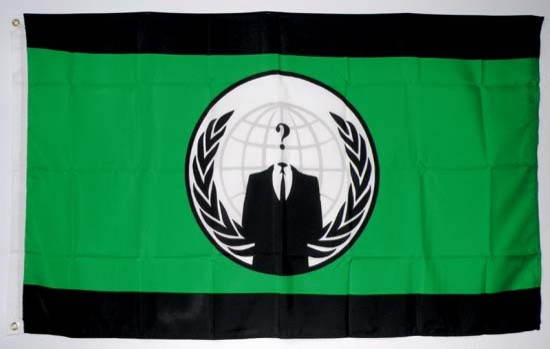Anonymous Hackers Attack Wall Street Journal Facebook Pages with ‘Comment Flash Mob’ [VIDEO]

Anonymous Kollektiv, a German subgroup of the 'hacktivist' group Anonymous launched what they called a comment flash mob on Feb. 21 against the Wall Street Journal (WSJ) in response to an article in the WSJ discussing claims made by NSA director General Keith Alexander that the group is growing in strength and could have the capability to shut down the U.S. power grid in one or two years. The article also included a quote from one government official who worried that in the future an enemy country or terrorist organization might hire Anonymous to conduct a cyber-attack against America.
The cyber-attack consisted of a single message posted by Anonymous members and supporters on the Facebook pages run by WSJ, starting in the German language section and quickly spreading to the main page and to a wide range of popular articles, including Why we pair up with our emotional opposites and Tight ties, killer heels make fashion victims.
Shortly after the WSJ article in question was published Anonymous Kollektiv issued a call to arms on their own Facebook page, writing, ATTENTION PLEASE! 3.15 p.m. - Comment flashmob on the site of the WSJ! We hope for active participation.
For the next few hours the WSJ Facebook pages were flooded with this message:
Dear editors of the German Wall Street Journal. You equated Anonymous with Al Qaeda in your February 2012 article and the related coverage. With this type of coverage you may be able to stir up fear in the United States, but not in the land of poets and thinkers! With this comment, we would like to oppose the deliberate dissemination of false information and express our displeasure with your lobby journalism. We are Anonymous. We are millions. We do not forgive. We do not forget. Expect us!
In response the WSJ online editors disabled comments for the German language pages, but the flash mob persisted for several hours, dominating the conversation and drawing publicity to Anonymous' message, until Anonymous Kollektiv shifted its focus to helping Saudi blogger Hamza Kashgari. Although the comments flash mob drew significant attention the issue the cyber-attack was relatively mild. No servers were brought down and the site never went offline even temporarily. No sensitive information regarding about WSJ staff or the paper was hacked or stolen.
The message itself is noticeably mild mannered, expressing the groups displeasure and describing themselves as poets and thinkers. The last few short sentences are somewhat ominous, and have appeared at the end of most of Anomymous' messages to the public, serving as a sort of slogan for the collective. Those last six short sentences have become Anonymous' slogan, ominously appearing at the end of every message the group sends out.
In a blog post by WSJ reporting on the cyber flash mob they noted that according to a Facebook representative attack did not violate the company's spam policy because the comments were posted by individual users. The WSJ has decline to comment on their online confrontation with Anonymous, but posted a video along with their blog post, in which three staff members discuss the cyber-attack and the formless 'hacktivist' organization in general (embedded below).
Anonymous has also responded to the allegations made by NSA chief General Alexander on YouTube, posting a video in which they equate his claims with fear mongering. The video suggests that the U.S. government may be preemptively pointing the blame at Anonymous so that if the U.S. power grid, which is notoriously outdated and poorly maintained, the government could blame a foreign enemy instead of taking the blame for failing to update its own infrastructure.
Anonymous also denied the allegations on Twitter, writing, No. Absolutely not. Why the [explitive] would we do that.
© Copyright IBTimes 2024. All rights reserved.





















